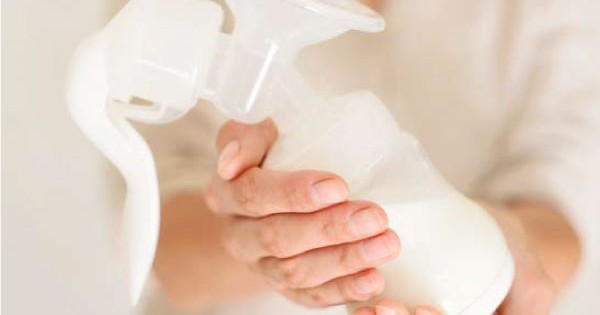Breastmilk is the perfect food, supplying baby with energy and nutrients, in exact proportions, that she needs to grow. If she receives enough breastmilk, baby won’t need any other food (or even water, for that matter) right until she’s about 6 months old when she starts taking solids. Even after then, you should continue feeding breastmilk to baby until her 2nd birthday. It’ll be the best nutrition foundation you could give to baby.
Breastfeeding Benefits
For Baby
- Breastmilk provides baby with all the energy, fat, carbohydrates, protein, vitamins & minerals that she needs until she starts taking solids.
- Colostrum, the yellowish milk that you produce when baby first begins to feed, is rich in antibodies that help protect your newborn from many infections.
- Breastmilk also contains lymphocytes and macrophages, cells that prevent the growth of bacteria, as well as bifidus factor and friendly bacteria to maintain a healthy environment in baby’s intestines.
- The essential fatty acids in breastmilk are crucial for baby’s developing brain and nervous system.
For you
- Breastfeeding can cause you to use up as much as 500 calories a day. This makes it easier for you to get back into shape after having gained weight throughout your pregnancy.
- Breastfeeding also causes your uterus to tighten up and return more quickly to its normal size.
For both of you
- Breastfeeding is a time for baby to enjoy the comfort that comes from seeing, smelling and feeling the warmth of your skin. For you, it’s a time to enjoy a feeling of closeness that you will always remember. When breastfeeding baby, look at her, stroke her and speak to her in soft, gentle tones. It’s a special experience that will bond the two of you for life.
Effective Breastfeeding Tips
- Eat a varied and well-balanced diet to enable your body to keep producing breastmilk.
- Stop whatever you are doing and try to sit quietly for a few minutes so as to calm down before breastfeeding baby. The more relaxed you are, the easier it will be for you to breastfeed baby.
- Allow sufficient time for baby to feed.
- Get your husband, a relative or the maid to help out with the chores so that you can breastfeed without interruption.
- Do not push your breast into baby’s mouth, let her take it in herself.
- Ensure that baby’s mouth covers your entire areola (the brown area around the nipple) so that she is not just sucking on the nipple.
- When you breast feed, alternate the breasts your baby starts to feed on. For example, if during the first feed she sucks on the right breast first until it empties then the left breast, on the next feed, you should start with the left breast and keep on the same process.
- Breastfeed on demand; the more frequently you breastfeed, the more milk you will produce.
- Breastfeed even if you have a cold or flu; the infection is unlikely to get passed on to baby.
- A few weeks before returning to work, learn to express your breastmilk (by hand or using a breast pump) and start feeding baby from a bottle or with a spoon.
- When you have begun working again, arrange for a private time and place to express your breastmilk at various times of the day. Store the milk in bottles and keep them in a bag. Ask to use the office fridge. Don’t worry if there is no fridge available; breastmilk stored in a tightly sealed bottle can keep for up to eight hours at room temperature.
- If you have difficulty in producing breastmilk or find difficulty breastfeeding, do not feel guilty or discouraged.You most probably need a little encouragement and advice. Speak to your doctor or a lactation nurse.
Are Breastfed Children Smarter?
A long-term study at Cambridge showed that 300 preterm babies who were breastfed during infancy scored significantly higher IQ points at age 71/2 to 8 years compared with full-term babies who were not breastfed during infancy. If there is a food for the brain, it’s probably breastmilk.
IS BABY GETTING ENOUGH BREASTMILK?
- Feed on demand. When baby cries, offer your breast if you think she may be hungry. In general, baby will want to feed every 11/2 to 3 hours. But remember, every child is different.
- Watch and listen as baby feeds. While breastfeeding, look for baby’s slow, steady jaw movement and listen for gulping sounds. Baby will stop sucking when she has had enough.
- Check baby’s diapers. Baby should wet at least six diapers per day with pale yellow urine, starting from the third or fourth day after birth. Baby will pass soft yellow stools many times per day. These are breastfeeding stools and not diarrhoea so do not worry.
- Monitor baby’s sleeping patterns. When baby is well fed, she should sleep well. When she’s awake, she should look healthy and alert.
- Steady growth. Baby should gain weight and increase in length steadily. Baby may breastfeed
more during different times of the day. As a general rule, baby doubles her birth weight by 5 months and triples it at one year.
DO YOU KNOW
that you can store breastmilk in the refrigerator (the section below the freezer)
for 3 days (72 hours) or in the deep freezer (-20°C) for 1 year?







Comments